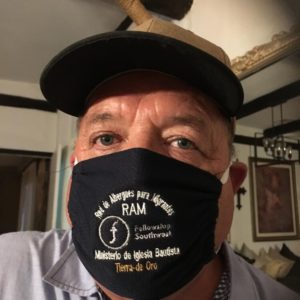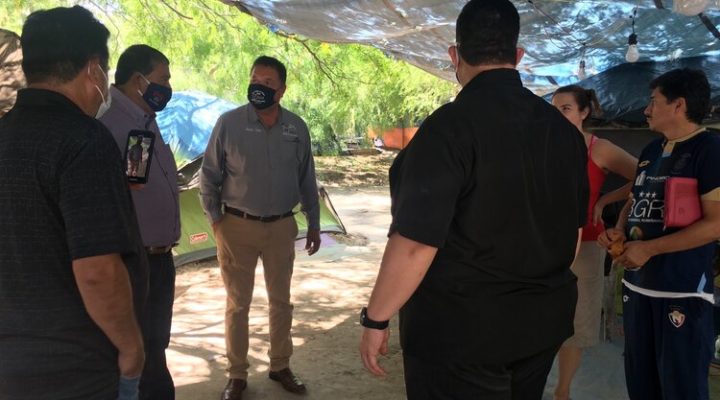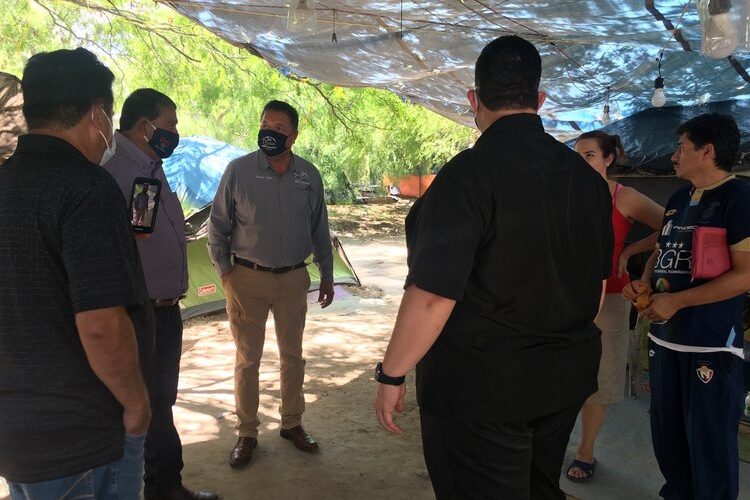A surge in coronavirus infections along the U.S.-Mexico border is impacting the ranks of clergy who minister to refugees, immigrants and other at-risk groups.

Marv Knox
Aid organizations and news outlets have consistently reported especially high COVID-19 rates in parts of Mexico where thousands have flocked seeking asylum in the United States. The pandemic, exacerbated by a hurricane event last month, has thrust overwhelmed ministers ever deeper into the path of disease.
“They have tried to be as safe as possible but given the density and vulnerability of those populations, it almost felt inevitable there would be outbreaks that would expose these ministers,” said Marv Knox, field coordinator for Fellowship Southwest, an ecumenical network of the Cooperative Baptist Fellowship.
The ministry recently reported that at least five of its ministers working in towns across the border from Texas have been exposed to the virus, with two cases confirmed.
“Pastor Lorenzo Ortiz, who operates shelters in Nuevo Laredo and Saltillo (Mexico), has tested positive for the virus,” the ministry reported in an Aug. 13 blog post. “Pastor Rosalío Sosa, who coordinates shelters across the state of Chihuahua (Mexico), began showing symptoms late last week and has also tested positive for COVID-19.”
Three Fellowship Southwest ministers were working with Sosa when his symptoms surfaced. Two of them — Jorge Zapata, associate coordinator of CBF Texas, and Elket Rodriguez, immigrant and refugee advocacy and missions specialist for the Fellowship — have since tested negative for COVID-19, Knox said Aug. 17. He is awaiting word on the test of the third minister, Pastor Eleuterio Gonzalez in Matamoros, Mexico.

Rosalío Sosa (Photo/Courtesy of Fellowship Southwest)
One member of Ortiz’ family also tested positive, but the minister told Fellowship Southwest their spirits are high: “We feel the peace of God, and we feel good.”
Sosa promised to do what it takes to get well, according to the blog post. “I will stay home and take care.”
But that can be a tall order for ministers like Sosa and Ortiz. In fact, it can be traumatic for them and the populations they serve, Knox said. “Each of these ministers is a linchpin in their communities. They’re all integrally connected to the work of ministry wherever they are. It’s not like they have a second-in-command.”
The ministry of these and other pastors was made even more challenging by Hurricane Hanna, which made landfall south of Corpus Christi, Texas, on July 25. Killing five people and causing extensive flooding and other damage in the Rio Grande Valley, the storm obliterated tent cities and flooded shelters packed with immigrants.
“It exacerbated the pandemic because it caused people to move around and caused others to respond even more than if things were more stable,” Knox said.
Ministers could not help but thrust themselves into the masses of storm victims, some of whom were exhibiting COVID-19 symptoms, he added. “They were taking people to medical care. It further eroded their ability to socially distance.”
But the ministry is continuing. Fellowship Southwest is providing masks to ministers and their volunteers in the hardest-hit areas and is seeking to meet the transportation and other needs of church-based operations when donations permit. “The ministry on the border is entirely donor supported. We don’t have a budget for this,” Knox noted.
Fellowship Southwest also faces a new challenge in trying to provide food for bi-vocational pastors in Juarez and Tijuana who have lost jobs due to the pandemic.
“These are pastors who were trying to feed and protect immigrants along the border, COVID or no COVID,” Knox explained. “The need has not abated. In fact, it has ramped up.”
Contributions to Fellowship Southwest’s border ministries may be made online.


